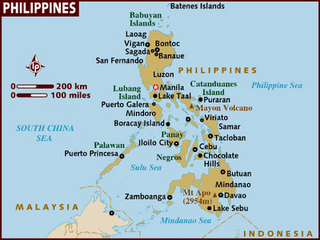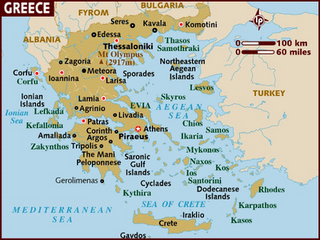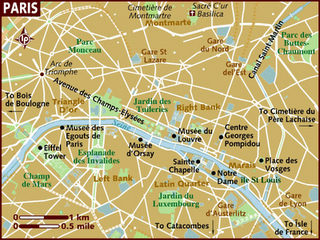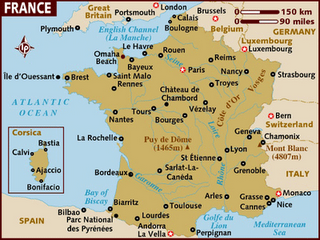
Manchester
Cotton mills, Morrissey, Man U, the Mondays.......ha,marvellous Manchester.
Manchester is looking up. Gone are the Dickensian days of grinding poverty. Gone too the gloom'n'doom of the 1980s indie punk scene and its Joy Division pessimism: over the last 15 years the city has developed a champagne-for-breakfast insouciance and an almost giddy attitude toward fun.
The town that started the industrial revolution is stepping out of the steam-and-sweat age and into a swanky, partying juvenilia. But 'Madchester' is more than just froth-at-the-mouth football and high-class party jinks - there's also museums, fine dining and excellent shopping.
Full Name
Manchester
Area
1,286 sq km
497 sq miles
Population
3,200,000
Time Zone
GMT/UTC 0 (Greenwich Mean Time)
Daylight Saving Start
last Sunday in March
Daylight Saving End
last Sunday in October
Languages
English (official)
Perhaps England's greatest cultural export has been the English language, the current lingua franca of the international community. There are astonishing regional variations in accents, and it is not unusual to find those in southern England claiming to need an interpreter to communicate with anyone living north of Oxford.
Currency
pound sterling (?)
Electricity
240V 50HzHz
Electric Plug Details
British-style plug with two flat blades and one flat grounding blade

Antarctica
It's the closest you'll get to visiting another planet.
Antarctica is the last vast wilderness on the planet. Its gigantic icebergs, mountain ranges and the emptiness of the polar plateau boggle the mind, while its weather curdles the blood. It's beautiful and serene, savage and violent, and its scale is almost unfathomable.
Full Name
Antarctica
Capital City
N/A
Area
14,250,000 sq km
5,501,925 sq miles
Time Zone
GMT/UTC ()
Country Dialing Code
672

Philippines
Although overlooked by the world, the Philippines is still cheap and cheerful.
With a reputation for being chaotic and corrupt, the Philippines has something of an image problem. But most who make the journey to the 7000-odd islands that comprise the Philippines are pleasantly surprised by their beauty and by the friendliness of the people.
Most of the Philippines is laidback, stable and relatively safe. The locals are an exceptionally helpful bunch and there are fantastic reefs and fish. On top of this, transport is cheap, the food is good, accommodation is plentiful and (for the monolinguistic) English is widely spoken.
Full Name
Republic of the Philippines
Capital City
Manila (pop: 10 million)
Area
299,000 sq km
115,444 sq miles
Population
84,619,000
Time Zone
GMT/UTC +8 ()
Daylight Saving Start
not in use
Daylight Saving End
not in use
Languages
Pilipino (Tagalog) (official)
English (official)
Religion
82% Roman Catholic, 9% Protestant, 5% Muslim, 3% Buddhist
Currency
Philippines Peso (P)
Electricity
220V 60HzHz
Electric Plug Details
European plug with two circular metal pins
Japanese-style plug with two parallel flat blades
Country Dialing Code
63

Greece
A deep respect for tradition, a deep love of good times.
Having exported chaos, drama, tragedy and democracy before most nations were staying up late enough to want souvlaki, Greece boasts an unrivalled legacy. But don't expect a visit there to be a sober study of the ancient world - the Greek propensity for partying dates back to Dionysos.
From sometimes smoggy Athens to blindingly bright islands, ancient fragments abound - the navel of the cosmos at Delphi, fallen columns galore on the sacred island of Delos, frescoed Minoan palaces on Crete and even - as some might believe - the remnants of Atlantis at Santorini.
When To Go
Conditions are perfect between Easter and mid-June - beaches and ancient sites are relatively uncrowded; public transport operates on close to full schedules; and accommodation is cheaper and easier to find than in the mid-June to end of August high season. Conditions are once more ideal from the end of August until mid-October, as the season winds down. Winter is pretty much a dead loss outside the major cities as most of the tourist infrastructure goes into hibernation from the middle of October till the beginning of April. This is slowly changing, however; on the most touristy islands, a few restaurants, hotels and bars remain open year-round, while the ski resorts on the mainland do thriving business.
Full Name
Hellenic Republic
Capital City
Athens
Area
131,940 sq km
50,942 sq miles
Population
10,668,000
Time Zone
GMT/UTC +2 ()
Daylight Saving Start
last Sunday in March
Daylight Saving End
last Sunday in October
Languages
Greek (official)
Modern (demotic) Greek is the official language of the State. It derives from Ancient Greek yet it has a much simplified grammar. It has absorbed many words from its linguistic and cultural neighbours. Modern Greek differs substantially from the purist 'Katharevousa', or cleansing Greek, an artificially contrived variant which is closer to Ancient Greek that was used at varying times in recent Greek history. While Katharevousa is no longer used in everyday speech it still evident on street signs and can cause occasional confusion for the tourist.
Religion
98% Greek Orthodox, 1.3% Muslim, 0.7% other
Currency
Euro (€)
Electricity
220V 50 HzHz
Electric Plug Details
European plug with two circular metal pins
Country Dialing Code
30

Austria
‘From monarchy to modernism’
Austria, at the geographical heart of Europe, is renowned for its ski resorts set on spectacular mountains, overlooking crystal-clear lakes and voluptuously green valleys. Throughout the country are glorious architectural reminders of the once-powerful Hapsburgs, who dominated central Europe for seven centuries. Nowhere is the legacy more evident than in the capital, Vienna, with its ornate Opera House and the former imperial residence of the Hofburg. Austria’s other cities are similarly infused with a historical magic, notably Salzburg, the birthplace of Mozart, with stunning Baroque churches set before a backdrop of snow-covered peaks, and Innsbruck, in the centre of the Austrian Alps. But Austria is also a hothouse of striking contemporary architecture, reflecting a modern country at the forefront of engineering, invention and design, and whose modern, efficient social system ensures a high quality of living for most of its residents. Austria has a justifiable reputation for music, literature and the arts, but also boasts a gourmet culture. The legendary Gem?tlichkeit – a relaxed enjoyment of life – is in evidence in the cafes, where the art of coffee-drinking has been raised to a high art, and the many Heurigen, where the latest vintages are accompanied by vast quantities of food. Nightlife is versatile, offering laid-back taverns, beer gardens and excellent apr?s-ski, as well as trendy clubs and dance venues packed to the small hours.
Sylvia Huber
eneral Information
Location
Central Europe.
Time
GMT + 1.
Area
83,858 sq km (32,378 sq miles).
Population
8 million (UN estimate 2005).
Population Density
97.4 per sq km.
Capital
Vienna (Wien). Population: 1.6 million (official estimate 1999).
Geography
Austria is a landlocked country, bordered by Switzerland, Liechtenstein, Germany, the Czech Republic, the Slovak Republic, Hungary, Slovenia and Italy. It is a mountainous country, nearly half of which is covered with forests. Austria’s nine Federal Provinces form a political entity, but reflect a diversity of landscapes falling into five sections: the Eastern Alps (62.8 per cent), the Alpine and Carpathian Foothills (11.3 per cent), the Pannonian Lowlands (11.3 per cent), the Vienna Basin (4.4 per cent) and the Granite and Gneiss Highlands or Bohemian Massif (10.1 per cent). Austria’s highest mountain is Grossglockner (3798m/12,465ft). On its way from the Black Forest in southern Germany to the Black Sea, the River Danube flows approximately 360km (220 miles) through Austria. The vegetation changes according to the climate: the lower regions are densely wooded, with fir predominating above 1600ft and giving way to larch and stone-pine beyond 4000ft; the Alpine foothills consist predominantly of arable land and grassland (above 2000ft). The Pannonian region is characterised by scrub and heathland.
Government
Federal Republic. Head of State: President Heinz Fischer since 2004. Head of Government: Chancellor Wolfgang Sch?ssel since 2000. Recent history: Haider - an extreme right-wing populist - and his party entered Government in January 2000. After a furious initial reaction abroad, which included diplomatic sanctions, the rest of the EU came to terms with the new Government. Against expectations, the Government survived until the autumn of 2002, before an internal Freiheitlichen feud between party leader Haider and Riess-Passer spilled over into the administration as a whole and brought it down. The election that followed saw the collapse of the Freiheitlichen vote to just 10 per cent – a third of its 1999 level – but Haider's Chancellor Sch?ssel, who held on to his post, was unable to negotiate an alliance with either of the other two main parties – the SP? and the Greens – and was obliged to form a second ‘black-and-blue’ alliance with the Freiheitlichen (after their party colours). In early 2003, the People's Party agreed to form a Government with the Freedom Party, who then proceeded to disband in 2003 when Haider set up the Alliance for Austria's Future. In April 2004, Heinz Fischer was elected President. Austria still succeeds in generating issues of right-wing contention: recent figures in late 2003 indicated that Austria had the most restrictive asylum laws in Europe. Austria is a federal Republic with bicameral legislature. The 183-member National Council is elected for four years; the 64 members of Federal Council do not have fixed terms. The President, elected for a six-year term, is Head of State. Executive power is held by the Chancellor, normally the leader of the largest party in Parliament, who leads a Cabinet of Ministers.
Language
German is the official language. Regional dialects are pronounced and within the different regions of the country one will encounter marked variations from Hochdeutsch, ie ‘standard’ German. There are Croatian and Slovene-speaking minorities in the Burgenland and southern Carinthia respectively.
Religion
78 per cent Roman Catholic, 5 per cent Protestant, 5 per cent Muslim, 12 per cent other religious sects.
Electricity
220 volts AC, 50Hz. Round two-pin European plugs are standard.
SOCIAL CONVENTIONS
Austrians tend to be quite formal in both their social and business dealings. They do not use first names when being introduced, but after the initial meeting first names are often used. Handshaking is normal when saying hello and goodbye. It is considered impolite to enter a restaurant or shop without saying Guten Tag or, more usually, Gr?ss Gott; similarly, to leave without saying Auf Wiedersehen can cause offence. Social pleasantries and some exchange of small-talk is appreciated. If invited out to dinner, flowers should be brought for the hostess. The Church enjoys a high and respected position in Austrian society, which should be kept in mind by the visitor. It is customary to dress up for the opera or the theatre.

Paris
Gay Paree will put the joie back in your vivre.
Paris stimulates the senses, demanding to be seen, heard, touched, tasted and smelt. From romance along the Seine to landscapes on bus-sized canvases to the pick-an-ism types in cafes monologuing on the use of garlic or the finer points of Jerry Lewis, Paris is the essence of all things French.
Gaze rapturously at its breezy boulevards, impressive monuments, great works of art and magic lights. Savour its gourmet selection of cheese, chocolate, wine and seafood. Feel the wind in your face as you rollerblade through Bastille, or a frisson of fear and pleasure atop the Eiffel Tower.
When To Go
As the old song says, Paris is at its best in springtime, even if it is sometimes a little wet. In winter Paris has all sorts of cultural events going on, while in summer the weather is warm and lazy - sometimes sizzling. In August, when Parisians flee for the beaches to the west and south, many restaurateurs lock up and leave town too, but this is changing rapidly and you'll find considerably more places open in summer than even a decade ago. Things can get a bit hectic around Bastille Day and towards the end of the year so reservations at this time are a good idea.
Full Name
Paris
Area
105 sq km
41 sq miles
Population
2,150,000
Time Zone
GMT/UTC +1 (Central European Time)
Daylight Saving Start
last Sunday in March
Daylight Saving End
last Sunday in October
Languages
French (official)
French is the official language and spoken by everyone; regionally however you will come across Flemish, Alsacian, Breton, Basque, Catalan, Proven?al and Corsican as well.
Catalan (other)
Basque (other)
Breton (other)
Corsican (other)
Currency
Euro (€)
Electricity
230V 50HzHz
Electric Plug Details
European plug with two circular metal pins

France
Douce France taught the world just how sweet life should be.
The French wrote the book on la vie en rose and gave the world champagne and camembert, de Beauvoir and Debussy, the Tour de France and the Tour Eiffel. There's a term for their seductive lifestyle - Douce France (Sweet France) and you'll find yourself using it often.
Although the ubiquity of Levis and Le Big Mac flusters the country's cultural purists, anything from a year in Provence to a weekend in Paris will explain why half the world grows dreamy over stalking Cyrano's streets or picnicking Manet-style sur l'herbe.
When To Go
Spring offers the best weather to visitors, with beach tourism picking up in May. Temperatures aren't too bad in autumn, although the short days mean limited sunlight and the cold starts to make itself felt towards the end of the season, even along the C?te d'Azur. Winter means playing in the snow in France's Alps and Pyrenees, though the Christmas school holidays send hordes of tadpoles in uniform scurrying for the slopes. Mid-July through to the end of August is when most city dwellers take their annual five weeks' vacation to the coasts and mountains, and the half-desolate cities tend to shut down a bit accordingly. The same happens during February and March.
Full Name
French Republic
Capital City
Paris
Area
547,030 sq km
211,208 sq miles
Population
60,400,000
Time Zone
GMT/UTC +1 (Central European Time)
Daylight Saving Start
last Sunday in March
Daylight Saving End
last Sunday in October
Languages
French (official)
French is the official language and spoken by everyone; regionally however you will come across Flemish, Alsacian, Breton, Basque, Catalan, Proven?al and Corsican as well.
Catalan (other)
Basque (other)
Breton (other)
Corsican (other)
Religion
86% Roman Catholic, 8% Muslim, 2% Protestant 1% Jewish, 3% unaffiliated
Currency
Euro (€)
Electricity
230V 50HzHz
Electric Plug Details
European plug with two circular metal pins
Country Dialing Code
33
